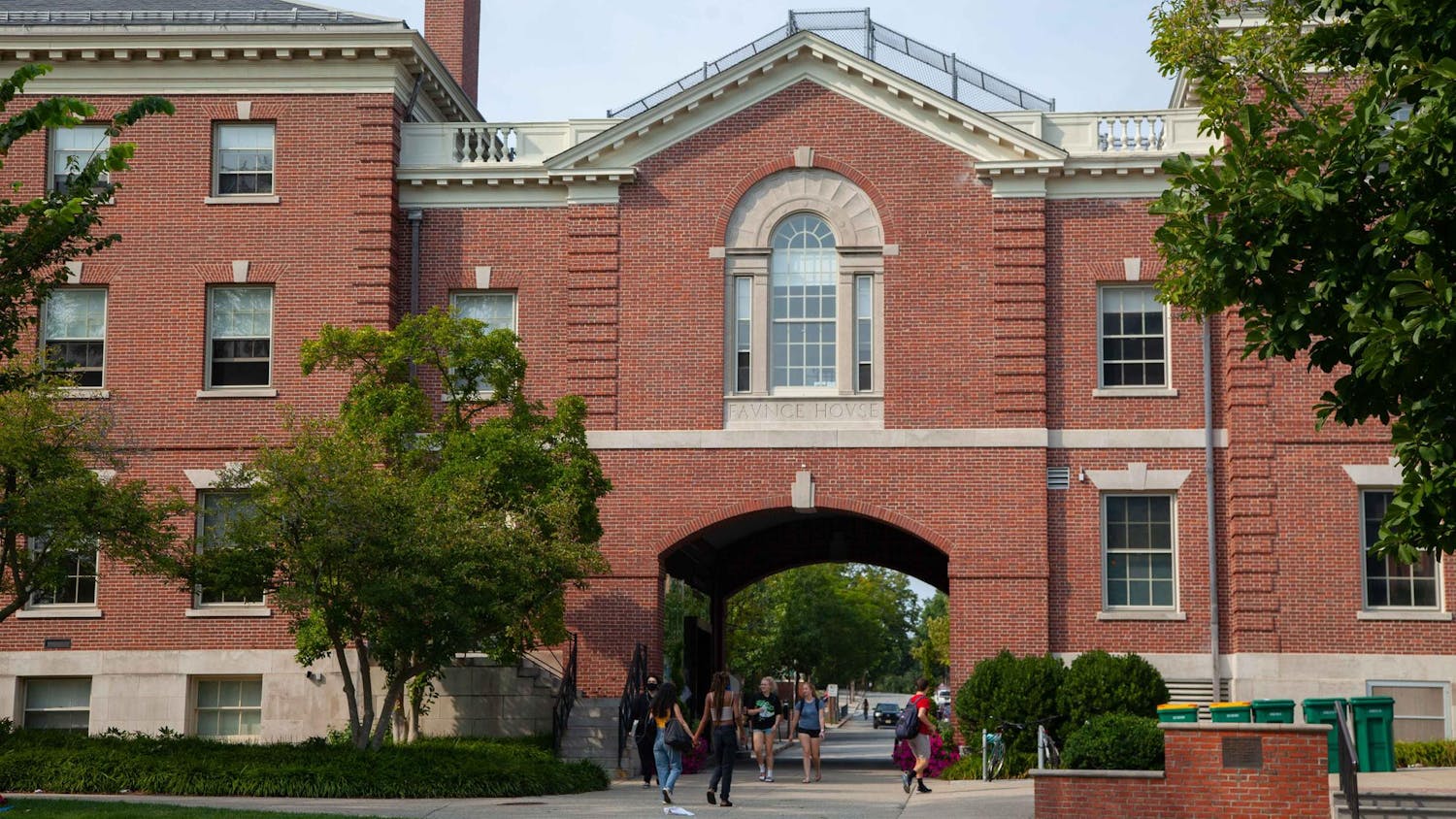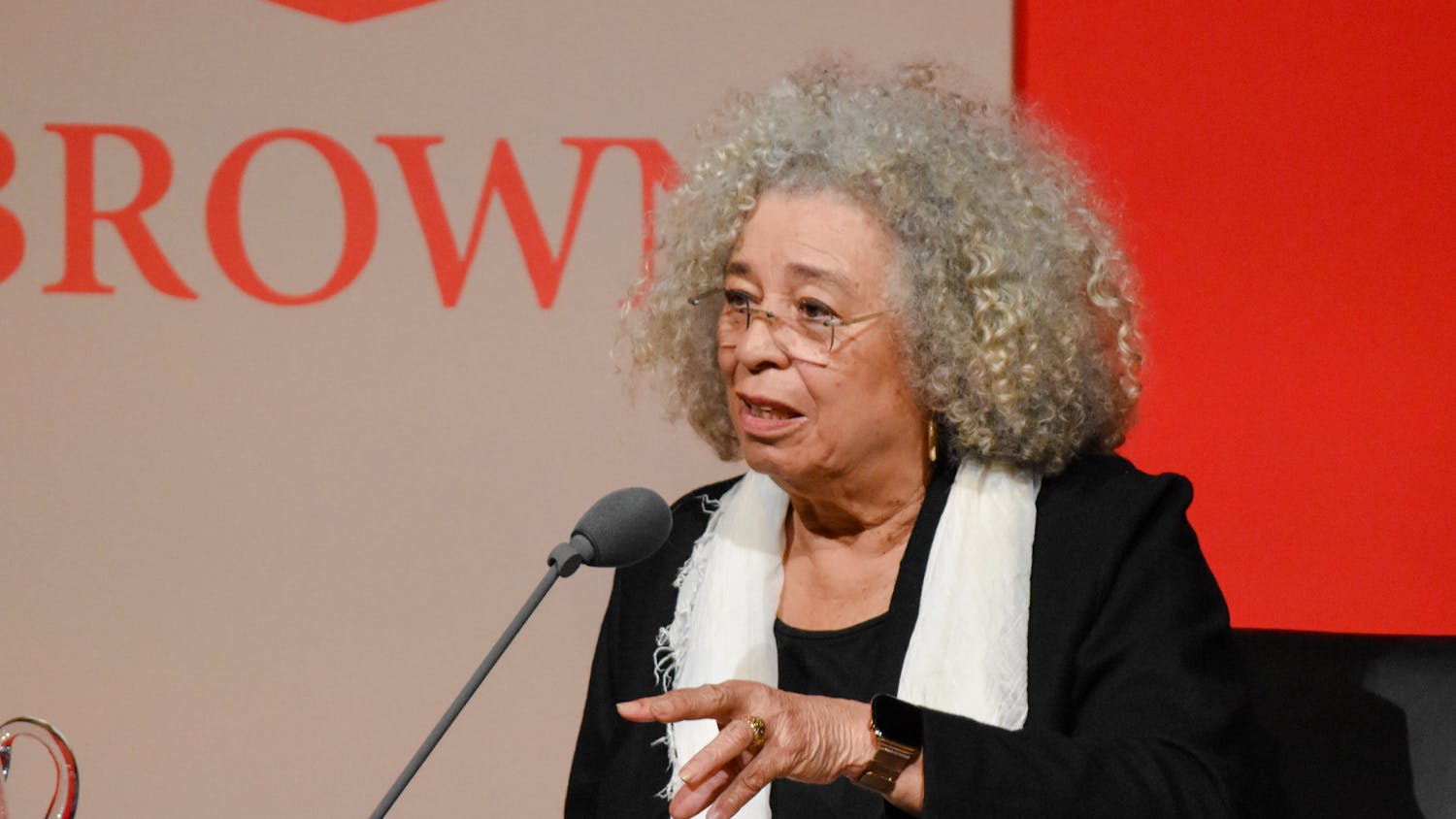The number of students studying abroad this semester or the last hit the lowest levels in at least a decade, according to data provided by University Registrar Michael Pesta.
This fall, just 199 undergraduates are abroad, down from 220 last fall — the fewest for a fall semester since at least 1999, the earliest date for which numbers were available. Last spring, the number of students abroad, 268, was down from 366 in spring 2008. That was the smallest number of students abroad in a spring semester since at least 1999.
Kendall Brostuen, director of the Office of International Programs, said the decrease in students studying abroad could be attributed to the economic downturn in the last year. "The fact that we were able to maintain (enrollment) is a very positive thing," he said. "It would not be surprising to have the number considerably drop."
Brostuen cited a recent survey by the Forum on Education Abroad that reported that 58 percent of private U.S. colleges and universities had experienced a drop in participation in their study abroad programs due to the economy.
The data provided by the registrar's office, which describe the enrollment of undergraduates over the last decade in both Brown-sponsored and "approved alternate" study abroad programs, also show that the proportion of students choosing Brown-sponsored programs has not changed significantly since a new policy took effect for students who matriculated in fall 2006 or later.
Under the new policy, students going abroad must pay full Brown tuition whether they choose a University-sponsored program or not. Previously, students had the option of shopping around for a less expensive, alternative program if they chose to do so.
Despite the change, the proportion of students in Brown-sponsored and alternate programs remains roughly half and half, with 51 percent choosing the alternative programs this semester. That balance has remained true historically over the period measured by the registrar's data.
Students who matriculated before the fall 2006 semester paid Brown tuition for study abroad programs run by Brown. For programs run by alternate institutions, they paid only what that program asked, which could be more or less than Brown tuition, as well as a "study abroad fee" of about $1,800 to the University.
While some students complained about the policy change around the time it was implemented, it does not seem to have affected students' decisions on what kind of program they choose.
"If the Corporation's approval of a revised fee structure were a primary factor, one would assume that these decreases would be prevalent in approved programs but not necessarily in Brown programs. This has not been the case," Brostuen added in an e-mail to The Herald.
Brostuen said the motivation for the policy change was "an equity issue." OIP advisers were worried that some students chose programs that were not a good fit simply because they were less expensive, he said.
Selection of a study abroad program should be based primarily on an "academic criterion," not cost, he said. "It's important that all students have access to study abroad."
Before the policy change, students who chose approved alternate programs had to take a formal leave of absence from the University during that time, which could cause a variety ofproblems, Brostuen said. Under the new policy, students on approved alternate programs remain in contact with Brown, he said.
The policy is also consistent with Brown's general tuition policy, Brostuen said. Students are required to have eight semesters of tuition credit to graduate. Students on approved alternate programs had to seek tuition credit retroactively for that semester, he said.
The OIP has received some student complaints about the policy and has had to explain the rationale behind it, Brostuen said. The policy and its reasoning is also spelled out on the OIP Web site and in admissions literature, he said.
For students worried they will not be receiving a Brown-quality education for their Brown tuition, Brostuen emphasized the careful selection process for the alternate programs the University approves. Any approved program must have proven it can provide academic rigor and support to its students, he said, adding that Brown wants "quality programs around the world."
When asked if some students were now trying to choose more prestigious programs or universities abroad to get a better bang for their buck, Brostuen said, "My sense is that hasn't been the case."
Terry Kho '12 said she thought it was "kind of silly" that a student would have to pay full Brown tuition for a school that might be of lesser quality. The cost and uncertainty of the program "kind of make you want to stay at Brown," she said.
Carolyn Crisp '12, who plans to study abroad, said cost would not be a deciding factor for her. "I'm more concerned about the experience," she said. She added that she would not choose an inferior program just because it was cheaper.
ADVERTISEMENT




